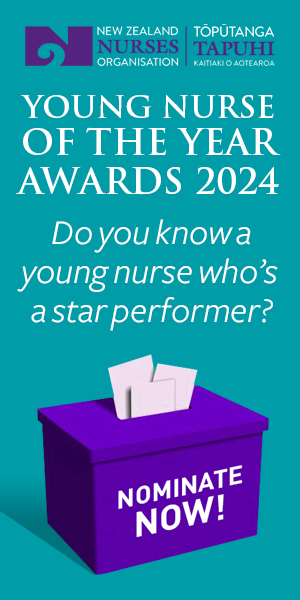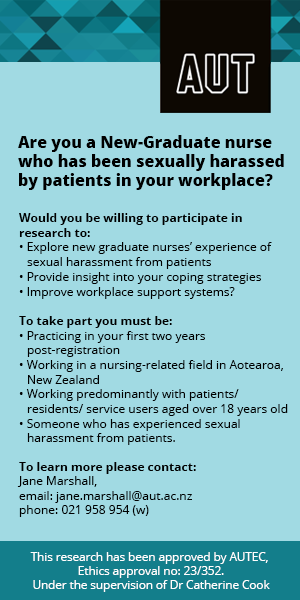There have been a number of questions raised about why the Nursing Council has developed and implemented a new competence assessment process for internationally qualified nurses (IQNs).
It was not a decision that was taken lightly.

The previous system had served us well.
But the council, whose board members include nurses, determined that we needed a consistent and objective approach to assessing competence, with public safety our over-riding priority.
We first signalled in 2022 that changes to the IQN process were being looked at.
The focus is to test a nurse’s competency rather than rely on qualifications which may be many years old.
Competence assessment programmes varied across the country, so the council wanted to move to a rigorous national approach based on examinations. That would mean that IQNs would take the same objective theoretical and clinical examinations.
A design group, which included nurses, was set up to develop content for the revised examination and there has been ongoing consultation with the sector. The new process, which began on December 4, 2023, is as follows:
If a competence assessment is required, an IQN will need to successfully complete:
- an online theoretical exam that tests a nurse’s theoretical and conceptual nursing knowledge, taken at an accredited Pearson virtual exam centre, overseas or in New Zealand.
and
- a two-day orientation and preparation course followed by a clinical examination known as an OSCE (objective structured clinical examination). The three-hour OSCE, which tests clinical and professional skills, is held at the Nurse Maude simulation and assessment centre in Christchurch. Applicants must attend the orientation and preparation course, plus the OSCE, in person.
IQNs will also need to complete a new online Welcome to Aotearoa programme to introduce them to culturally safe nursing in New Zealand and te Tiriti.
Online te Tiriti course an ‘introduction only’
These types of theoretical and clinical examinations are used internationally across the health sector for nurses and doctors, among others, to objectively assess health-care professionals. The focus is to test a nurse’s competency, rather than rely on qualifications which may be many years old.
The courses are designed to introduce IQNs to te Tiriti o Waitangi and our unique cultural context.
One concern raised has been that the new online cultural safety courses would not be sufficient to prepare nurses for the unique cultural requirements of nursing practice in Aotearoa New Zealand.
The courses are designed to introduce IQNs to te Tiriti o Waitangi and our unique cultural context. They are intended to serve as an introduction only and will be the start of the cultural journey for nurses across their career.
Employers will need to continue to invest in orientation to build on the initial introduction. The two-day preparation course prior to the OSCE will provide a basic overview of culturally safe practice in the context of te Tiriti.
Old and new systems both run till next year
The council will continue to offer the existing competence assessment programmes (CAPs) alongside the new process of competence examinations for the next year as we transition from the previous to the new process.
There are nurses in the pipeline who applied under the previous process, so throughout 2024 and early 2025 we expect there will be demand for CAP placements, and the council will continue to work with CAP providers on this.
IQNs are a valued and valuable part of our nursing workforce who fill roles in our hospitals, aged care homes, GP clinics, and in our community.
Some IQNs, who have an offer of a CAP, are being given the opportunity to choose the examination process. This is about being fair to IQNs and providing them with the option to undertake the new assessment system if that is what they would prefer.
Drop in required hours of practice for IQNs
There was a concern voiced about the number of practice hours required for IQNs to register. These have now been reduced from 2500 to 1800 hours. The hours were used as a proxy measure of competence but now that competence is being directly tested, and after consultation, 1800 hours was thought sufficient.
With an ageing population which is presenting with increasingly complex health needs, there is an ever-expanding demand for nurses in what is a tight global market. New Zealand has always and will continue to require IQNs to bolster the workforce gaps.
IQNs are a valued and valuable part of our nursing workforce who fill roles in our hospitals, aged care homes, GP clinics, and in our community. They will continue to be a valuable part of our workforce as health demands increase.
The new competence examination system will deliver a robust process. We believe objectively assessing the competence of IQNs is the right path forward to assist in building a diverse and competent workforce.
The theoretical examination is available in over 15 countries internationally and the orientation, preparation course and OSCE is taken in person in Christchurch.
— Catherine Byrne is the chief executive of the Nursing Council.





